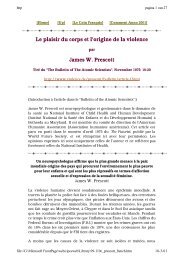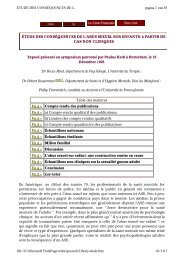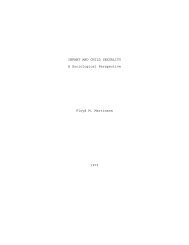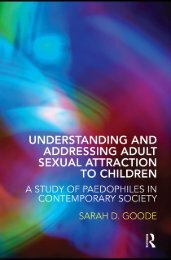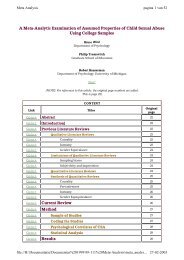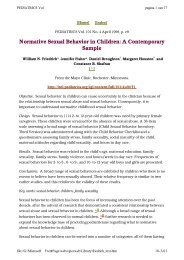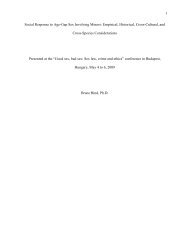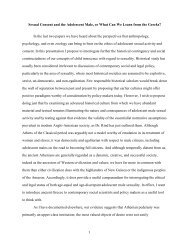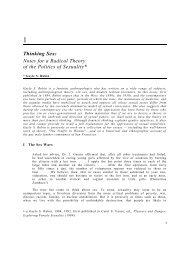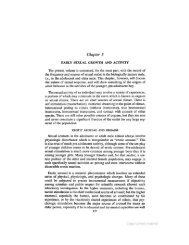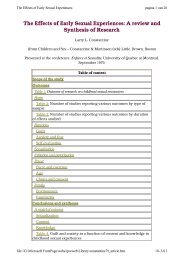PDF file - Ipce
PDF file - Ipce
PDF file - Ipce
You also want an ePaper? Increase the reach of your titles
YUMPU automatically turns print PDFs into web optimized ePapers that Google loves.
Part_5_2<br />
be able to dig deeper, I believe, if we cut into a broader patch of philosophical ground (and<br />
with less chance of the sides caving in on us!)<br />
About ethics<br />
[See the Whiteboard]<br />
My starting point for this broader approach is essentially this book [indicate Peter Singer (ed)<br />
Ethics, Oxford University Press, Oxford, 1994)] , which has not a single word in it about<br />
paedophilia but does suggest features we should be looking for and analyzing in any ethical<br />
proposition. So, forgive me if I start first with some very abstract points which I hope we can all<br />
apply later in the discussion, or at least begin to think about, with regard to paedophilia. These<br />
abstractions necessarily take us into a very deep labyrinth of thought, the passages and tunnels<br />
dug over more than two millennia since the days of Plato. I might well get lost in them. You<br />
might help me find a way out. But I would not even begin this hazardous exploration without<br />
being pretty sure there are great riches to be mined.<br />
However, the essential concepts I feel it necessary to introduce are mercifully few in number.<br />
Just two.<br />
Firstly, if we want to know whether this or that behaviour is ethically sound we need a<br />
clear idea of what we want for society and the people in it, and indeed for animals, the<br />
environment and so forth. We need to be clear about what we think is good.<br />
Secondly, we need to assess whether particular actions are or are not consistent with our<br />
sense of what is good. By this stage things are already very tricky - we may have more<br />
trouble than we suppose in agreeing what is good, but the going gets even tougher<br />
when we try to judge the merit of particular actions.<br />
The most important thing to be aware of when judging the merit of particular actions is that<br />
there is a great divide in ethics between those who<br />
(a) judge actions right or wrong according to the consequences of the action and<br />
(b) those who judge not by the consequences but whether the behaviour is in accord<br />
with a set of rules or principles of behaviour.<br />
Those who judge acts by their consequences are now known as consequentialists. They used to<br />
be called utilitarians but that term became confusing because it referred to only one type of<br />
consequentialist, namely those who judge all acts by the net amount of pleasure or happiness<br />
they produce. Referring back to our first essential concept, because there is a variety of<br />
arguably good things to aim for besides happiness - the service of God, for instance, is another -<br />
http://home.wanadoo.nl/ipce/newsletters/nl_e_12/part_5_2.htm (2 of 13) [10/16/2002 5:35:14 PM]



